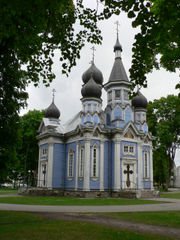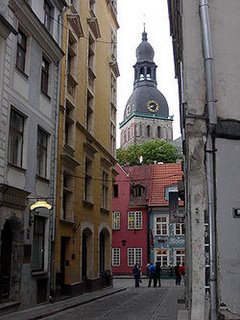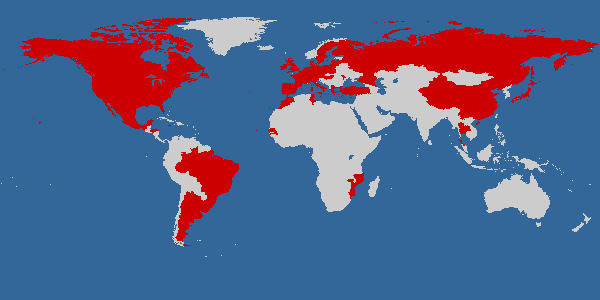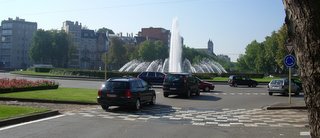Druskininkai

After the conference in Riga, I went back to Lithuania for another meeting. This time I went to the beautiful town of Druskininkai, a spa town close to the borders to Belarus and Poland, situated in a picturesque landscape with rivers (Ratnycia and Neman), lakes, hills and forests.
Since the beginning of the 20th century, Druskininkai spa resort became one of the most popular resorts in the area, with tourists and reconvalescents coming from all over the world. It also became a place of summer residence for middle class of Vilnius, Warsaw and Moscow. After the World War I the town became part of Poland and soon became one of the three most popular Polish resorts. After the Soviet aggression in 1939 and a staged "referendum", the town was incorporated into Belarusian SSR. Following the World War II Druskininkai was transferred to the Lithuanian SSR. Starting with 1951, it began to grow rapidly and several huge sanatoriums and spa hospitals were opened. The city became a famous resort, attracting around 400,000 visitors per year from all over the Soviet Union. During the last few years, Druskininkai began a fast revival. Sanatoriums, spa's and city's infrastructure were started to be renovated both by municipality and businesses. Numbers of visitors and tourists, especially from Lithuania, Poland, Russia and Israel increase every year. Nowadays, approximately 30 different illnesses are treated in Druskininkai. Despite demolitions during the World War I, the city features houses and villas reflecting all periods of its development - Russian, Polish and modern.
Apart from the beauty of the town, I will always remember Druskininkai for the nice people I met, today's sunny morning and the quietness of the parks bordering the river. And, of course, for the nice full-body massage I had yesterday!



